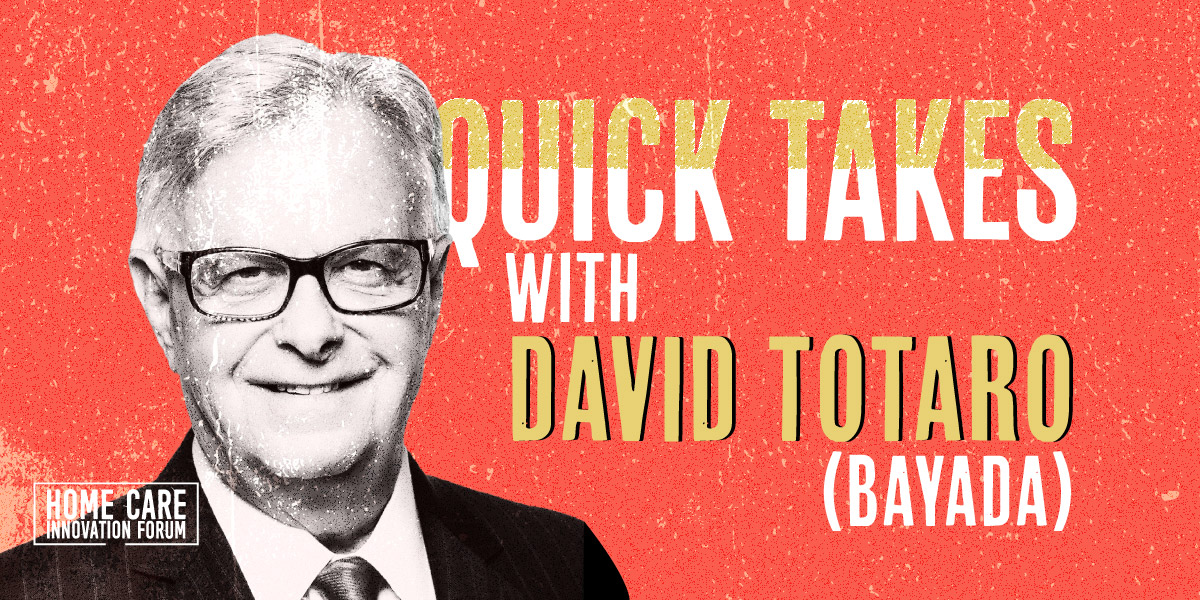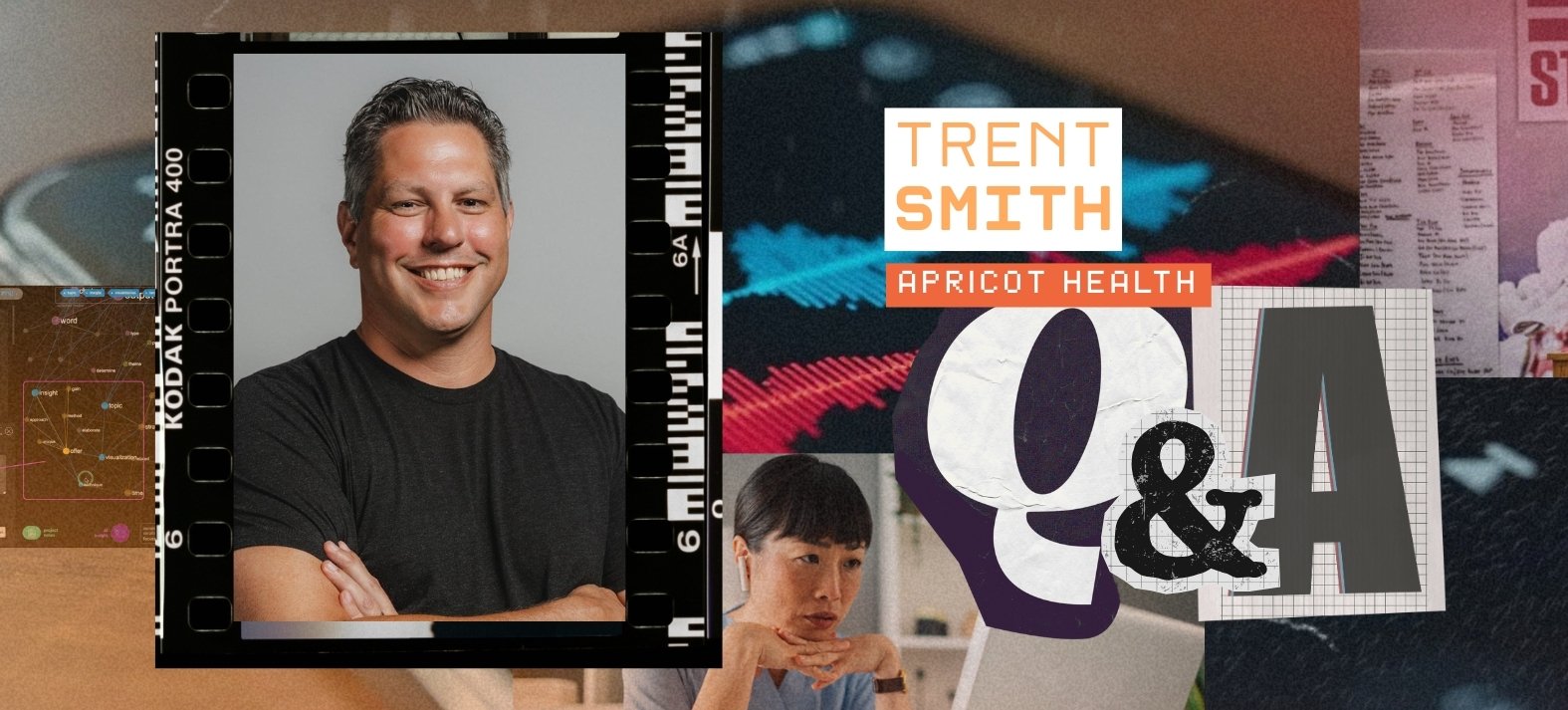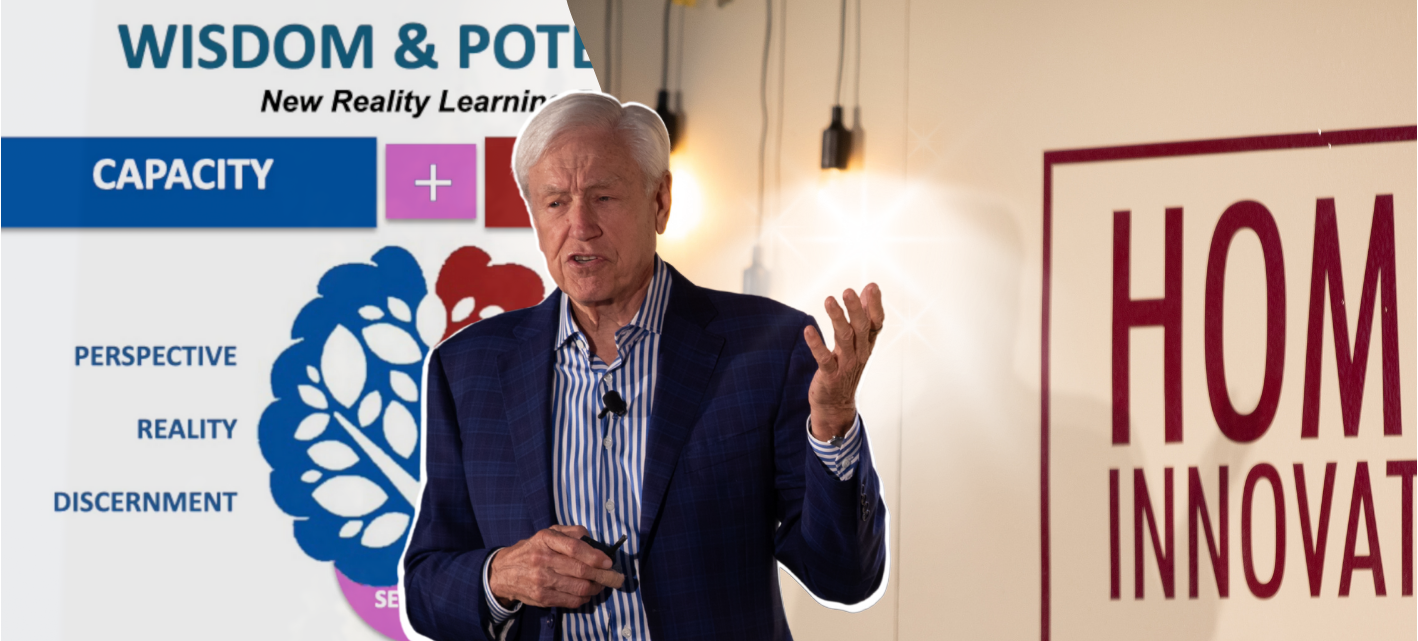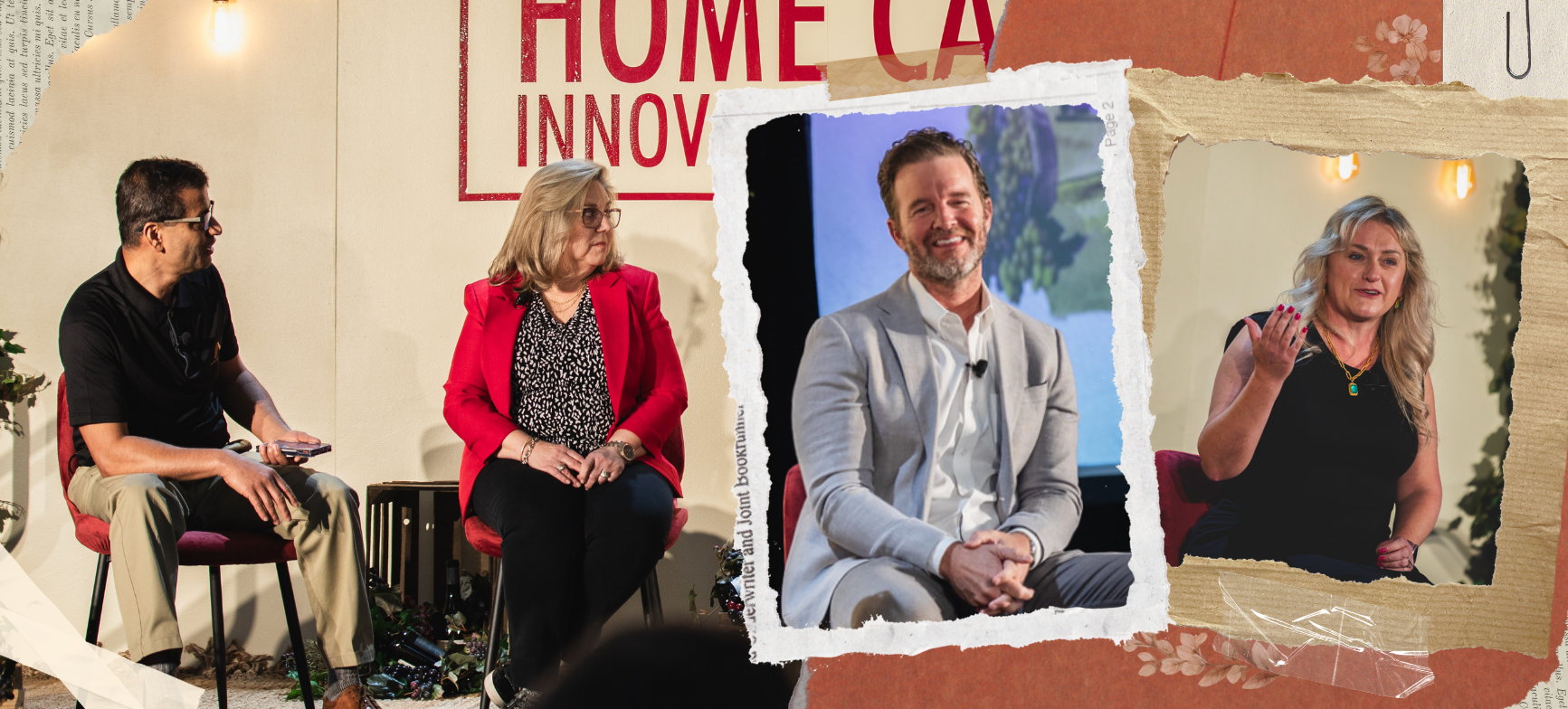Last year, the home health care industry breathed a sigh of relief when the Centers for Medicare and Medicaid Services (CMS) backed off an originally planned 7.69% cut in its reimbursement rate to provider agencies.
One of the main reasons? The industry came together and effectively advocated for itself, getting that percentage cut to 4.2% and eventually paused altogether for CY 2023.
“There’s an old African proverb: ‘If you want to go fast, go alone. If you want to go far, go together,’” said David Totaro, Chief Government Affairs Officer for BAYADA Home Health Care. “We're seeing that as a reality now.”
We caught up with Totaro, a featured speaker at the upcoming Home Care Innovation Forum, who spoke about BAYADA’s innovative advocacy strategy, what’s next for the workforce alliance he helps lead, and why in the effort to stave-off future cuts, providers shouldn’t see each other as competitors, but as partners.
This transcript has been edited for length and clarity.
Last year the industry dodged a bullet after CMS decided to back off proposed rate cuts. What do you see happening this year?
Totaro: Well, everything we've seen so far indicates that there's not gonna be a lot of change from what we've seen in the past. And that means there's probably going to be a cut on the horizon. We are going to have to mobilize to go after this to mitigate those (potential) cuts. I think for the next three to five years, we're gonna still be facing the same situation over and over again. Now, the good thing is that we have increasingly large resources in Congress with more champions that are willing to help us realize the benefit of home health for seniors.
We’ve been able to be successful in combating those cuts in the past. I'm pretty confident that we're going to get some resolution in the future as well.
What’s the reticence from CMS to increase funding when home health's value and the demographic realities are so apparent?
Totaro: That's really an excellent question because we've faced that type of response from legislators in the past, but legislators have other competing interests and advocates they must deal with sitting in front of them asking for funding as well. As for CMS, though, that’s an entirely different animal. It's confusing why they're taking that position. There are no real answers on the horizon with that one.
I think we have to continue to study it and work with individuals who are in key positions there (at CMS). We've had the door open for us. We've met with the top administrators there several times over the last six months, and I believe that we're getting our message through. But, we’ll see in July again whether or not they're gonna come back with some deep cuts as they have in the past.
A passion for advocacy was ignited last year. What lessons from 2022's efforts can be used advocacy-wise in the future?
Totaro: Well, the first thing I think that we've learned as an industry is that when it comes to advocacy, we're not competitors, we're all in this together. We've become partners looking for solutions. We have very effectively done that, particularly over the last year with two of our major national associations coming together to find solutions and actually working together, weekly, in developing a movement.
We are a very large industry, but because of the fact that we’re fragmented in many ways, we haven't been able to show the large footprint that we have. And I'm confident that in the near term, we're gonna hear about a number of things that are going to improve that, and we're gonna be able to show that we can be an effective, strong, collective voice for the issues that we have.
What advocacy work have you been doing at BAYADA that other providers could learn from?
Totaro: We've (BAYADA) done something that no one else has done in our industry, and that is that we've recognized that all politics is really local. We are the first provider that took our national advocacy program -- one of the strongest in the industry -- down into the 350 offices we have across the country. We have someone who is designated as a government affairs specialist in each one of those offices. We call them ambassadors, and they’re trained monthly by my team on our issues. We give them talking points and other materials they can use when they sit down with their local legislators – US congressmen, senators – who provide them more time when they're in their district than they do in Washington.
I think more and more providers need to do that to realize that it's not just happening in Washington. You can get it done in any city or state in the country. In these local meetings, we can bring a patient, a client, or a caregiver, and they can say, ‘Look, this is how my life has improved as a result of having care in the home.’ Those personal stories stick with people. Lawmakers get to hear how the decisions they're making every day are affecting their constituents. Those stories get remembered.
We know that advocacy works. I have been asked many times by others, as well as our CFO, ‘Does advocacy really work? Does the investment pay off?’ We had an outside group come in and analyze what we've done at BAYADA over the last 15 years. They found our return on investment from the time we started in 2012 until today has been 14 to 1. Over the last three years specifically, it’s been 24 to 1.
What’s new with the workforce alliance you’re helping to lead?
Totaro: The Home Care Workforce Action Alliance was formed in May of last year. We then broke up into several different work groups focusing on both home care and home health. I chaired the one on home care issues. We submitted our reports separately to both the Home Care Association of America and the National Association of Home Care and Hospice in December.
The report has now been finalized. It went to the printer on Thursday and will be announced next week. I'm not really able to say what the report will say right now.
I can say the report’s findings were very positive, with very specific initiatives recommended to help mitigate the staffing crisis and other workforce issues. By the time of the event in June, we'll be able to talk about it much more freely.
Posted by
Join us!
The retreat for home health care and hospice leaders innovators.
May 17-19, 2026 | Palm Springs, CA




-2.png)


-2.png)


Comments